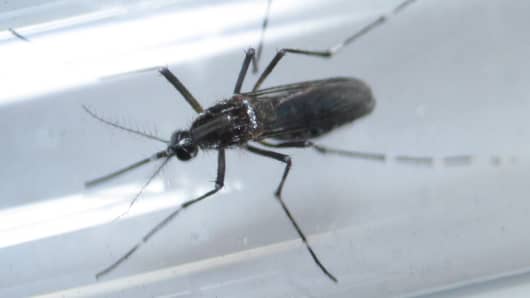We are learning more about Zika daily, and what we know about it is disturbing. Zika virus infection during pregnancy can cause severe fetal brain defects, such as microcephaly, and has been linked to pregnancy loss and problems in infants, such as eye defects, hearing loss and impaired growth.
What we do not know about Zika is just as disturbing, such as whether the risk of birth defects persists for an extended period beyond when a woman is infected or how long the risk of sexual transmission remains after a man has been infected. There are now more than 400 women in the United States, including territories, who have evidence of infection with Zika, and that number is expected to increase in the future.
Yet, four months after international health agencies, including the World Health Organization and the Centers for Disease Control and Prevention (CDC), sounded the alarm on the dangers of Zika virus, we are experiencing the same insufficient mobilization that characterized the initial response to the Ebola epidemic.
While some existing funding from governments is being redirected for the Zika response, a congressional compromise on emergency funding to fight Zika has yet to be reached, and current government support is insufficient to protect America and the world. This challenge makes the need for support from foundations, companies and private philanthropists more critical than ever.
In our work around the world, we have seen firsthand that government funding is absolutely essential to beating back health threats. But governments can't do it alone. It is imperative to supplement government funding with the speed and flexibility of support from the private and philanthropic sectors in order to get the job done.
From past and recent history, we know the grave consequences of not heeding calls to action. Think of the Ebola crisis that simmered in West Africa in late 2013 before exploding in summer 2014. When organizations such as CDC put out a warning, we must answer the call, just as we did after CDC Director Dr. Tom Frieden conveyed his urgent assessment of the Ebola crisis following an on-the-ground survey in West Africa.
Ebola still represents a worldwide threat—one that needs continued funding in its own right. Unfortunately, Zika is equally alarming. Once Zika takes hold in this country it can spread rapidly. While the long-term health effects of Zika virus infection are not yet known, we absolutely do know that the effects on families of children born with these severe birth defects will last a lifetime.
Looking back to Ebola, most people in this country did not fully appreciate the deadly outbreak until a single patient with Ebola flew to America. Here's a wake-up call: Zika is already here. It has entered America through hundreds of travelers coming back home from countries with active Zika transmission and it exists in more than 40 other countries and territories globally. In many of our neighboring countries Zika is spreading rapidly through local transmission by mosquitoes. And the mosquitoes that can carry Zika are prevalent in many parts of the United States—probably including your neighborhood.
As Zika evolves and spreads, there remains an urgent need for $45 million in flexible funding from philanthropies and the private sector to help CDC protect people, especially women of reproductive age in high-risk areas. Organizations including the Bill & Melinda Gates Foundation, Bayer, SC Johnson, and others, are helping to fill the gap, through $1.7 million in funding plus substantial commitments of in-kind product donations to the nonprofit CDC Foundation, but much more support is needed to help CDC implement life-saving programs to protect us all. History has shown with viruses such as HIV and AIDS, SARS and Ebola that the longer we wait to get things under control, the higher the ultimate human and financial toll becomes.
The clock is ticking, and we don't have a minute to waste. It is vital to think beyond our organizations' existing funding priorities to help CDC respond to and prevent further spread of Zika. This includes immediate support for countries and states at risk, research to learn more about the long-term health risks and funding for vaccine development.
The government has unique capacities as well as limitations. The same is true with the private and philanthropic sectors. When we work together, we can do much more than any of us can accomplish individually. Let's work together on the Zika response, before it's too late.


